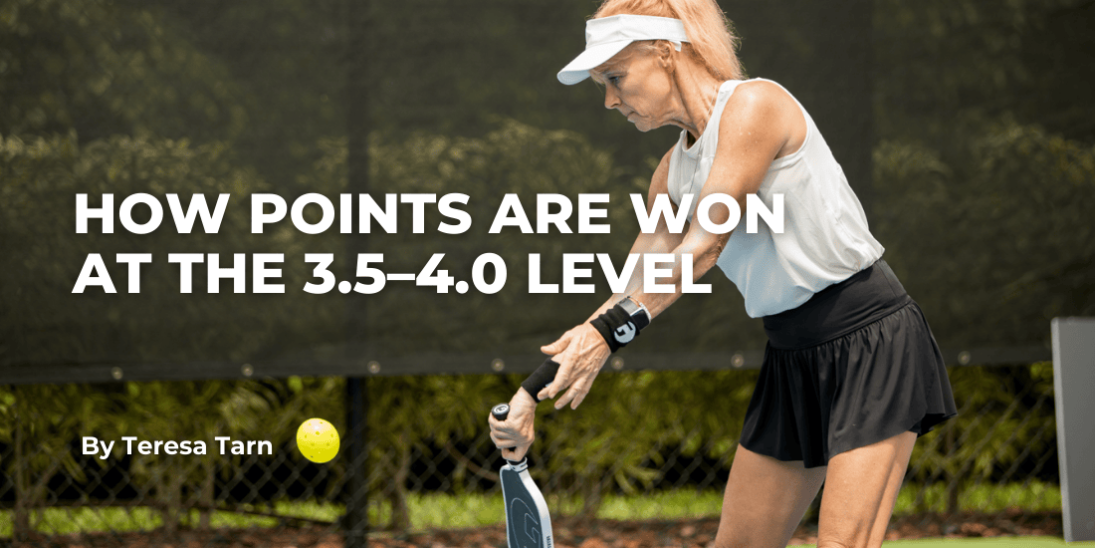Pickleball
Welcome and thanks for visiting...

Is The Line In Or Out In Pickleball
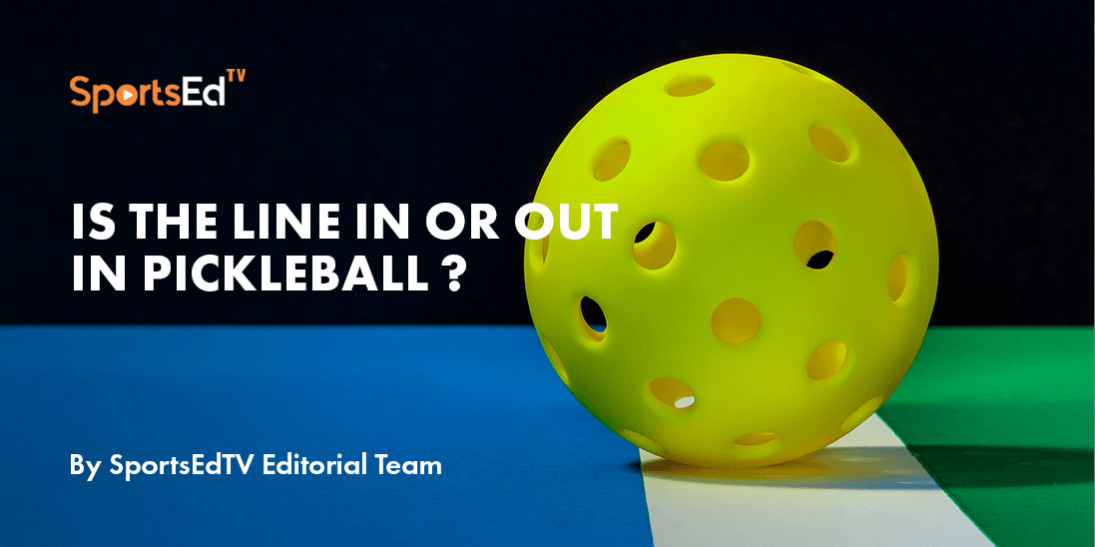
Line calls in pickleball
Those of us at SportsEdTV who have been tracking and producing pickleball instructional videos have been taken with the amazingly fast growth the sport has enjoyed.
One of the trickiest parts of the game is how players need to learn the intricacies of calling the lines—that is, being responsible and ethical in calling whether a struck pickleball shot lands in or out of the boundary lines of the court.
When a ball is deemed out of bounds, either a point is won, or a serve is lost, depending on the game situation.
In more formal competitions, a referee and sometimes line judges may be responsible for line calls, as shown in the reproduction of line calling rules that follow later in this blog.
Visits to pickleball governing organizations will reveal a common theme, which is that pickleball, at its roots, is a fun, friendly, and social sport. Its popularity inevitably triggered the competitive spirit of athletes, and as professionalism and business flocked to fill voids, the friendly and social impact of rules uniquely maintained the rooted spirit of pickleball.
One prominent pickleball standard that exemplifies the social spirit of the game is the rule that says when a player's line-calling responsibility is unclear, whatever the circumstances, it must be resolved in the opponent's favor.
In USA Pickleball’s 2022 Rules book, there is a further example of the game's respect for its origins as it speaks to the Code of Ethics, specifically attending to the subject of line calls.
It is item 6.d below, reprinted from that publication.
xLINE CALL RULES
6. A. A served ball that clears the non-volley zone and lands in the correct service court or on any correct service court line is in.

6.B. Except for the serve, any ball in play that lands in the court or touches any court line is in.
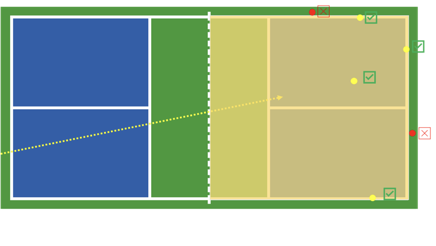
This is in
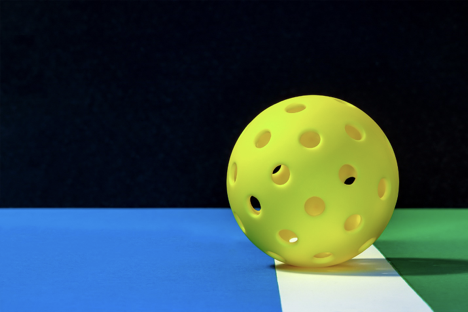
6. C. A ball contacting the playing surface completely outside of the court is “out”.
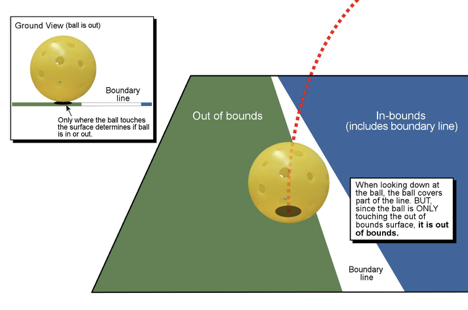 Image courtesy of usapickleball.org
Image courtesy of usapickleball.org
6.D. Code of Ethics for Line Calling. Pickleball is played according to specific rules. It also requires a code of ethics for line-calling responsibilities when performed by players. The line-calling responsibilities of players are different from those assigned to referees or line judges. The officials make impartial judgment calls with all players’ interests in mind. The player, when assigned line-calling duties, must strive for accuracy and operate under the principle that all questionable calls must be resolved in favor of the opponent.
The basic elements of line calling in pickleball:
6.D.1. Players are responsible for calling the lines on their end of the court (excluding short serves, service foot faults, and all non-volley-zone faults if being called by a referee). If a player makes an initial line call and then asks for either the opponent(s) or the referee's opinion, if the opponent or referee can make a clear "in" or "out" call, the clear call will stand. If no clear call can be made, the initial line call by the player will stand. A call made by the opponent can be appealed to the referee for a final "in" or "out" decision.
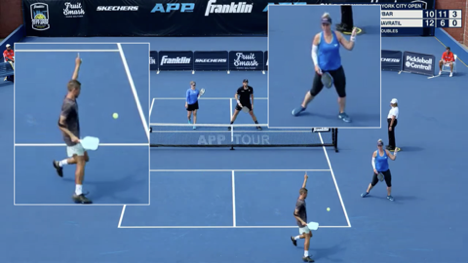
6.D.2. Players’ only line call is the centerline on the serve in matches that have line judges.
6.D.3. The opponent gets the benefit of the doubt on line calls made. Any ball that cannot be called “out” will be considered “in.” A player cannot claim a replay because the ball was not seen or there is uncertainty. A player who does not make a call may appeal to the referee to make the call if they did not clearly see the ball land. If the referee is unable to make the call, the ball is “in.” The moment the receiving player/team appeals to the referee, they lose their right to make any subsequent "in" or "out" call for that rally.
6.D.4. Spectators should not be consulted on any line call.
6.D.5. A player should not question an opponent’s call, although any player may appeal a call to the referee before the next serve occurs.
6.D.6. A player/team may ask the opponent’s opinion to make the line call on the player’s end of the court. If requested and the opponent makes a clear “in” or “out” call, it must be accepted. If the opponents cannot make a clear “in” or “out” call, then the ball is ruled as being “in” on the receiving team. The moment the receiving player/team asks for the opponent's opinion, they lose their right to make any subsequent "in" or "out" call for that rally. The receiving team/player may also appeal to the referee to make a clear call. If the referee cannot make a clear call, the outcome of the opponent’s ruling will stand.
6.D.7. Players shall not call a ball “out” unless they can clearly see a space between the line and the ball as it hits the ground.
6.D.8. All “out” calls must be made “promptly”; otherwise, the ball is presumed to still be in play. “Promptly” is defined as calling “out” prior to the ball being hit by the opponent or before the ball becomes dead.
6.D.9. In doubles play if one player calls the ball “out” and the partner calls it “in,” then doubt exists, and the team’s call will be “in.” Any player may appeal a call to the referee. If the referee did not see the ball, the ball is considered in.
6.D.10. “Out” line calls should be promptly signaled by voice and/or hand signal (as described in Rule 13.E.2).
6.D.11. While the ball is in the air, if a player yells “out,” “no,” “bounce it,” or any other words to communicate to their partner that the ball may be out, it shall be considered player communication only and not considered a line call.
6.D.12. An “out” call made after the ball bounces is a line call. The ball is dead, and play shall stop. If, upon appeal, the referee overrules any type of “out” call, it is a fault against the player or team that made the “out” call. Exception: If the match has line judges, the baseline and sideline judges are responsible for the call.
6.D.13. After the completion of a rally, players may overrule a partner’s line call, an officiating team’s line call, or an opponent’s “in” call to their own disadvantage.




